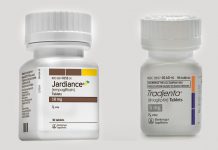According to new research, published in the journal of JAMA Internal Medicine, people who eat ultra-processed packaged foods are more likely to develop type 2 diabetes.
Researchers found a strong association between ultra-processed foods and the risk of obesity, heart disease, type 2 diabetes, cancer, and even the risk of premature death.
Ultra-processed foods include readymade meals, packaged snacks, and sugary drinks, which contain a large number of additives and preservatives. These types of packaged foods are more prevalence in Western diets, which is why there has been a surge in type 2 diabetes cases.
Study author Bernard Srour and his team examined the dietary habits of over 100,000 people from 2009 to 2019. They analyzed the participants’ dietary intake using repeated 24-hour dietary records. They also asked them about their consumption of around 3,500 different foods, which were classified, according to the NOVA system, into four categories – “unprocessed/minimally processed, foods culinary ingredients, processed foods, and ultra-processed foods.”
Srour and his colleagues found a strong association between ultra-processed food consumption and the risk of type 2 diabetes.
“In this large observational prospective study, a higher proportion of [ultra-processed foods] in the diet was associated with a higher risk of [type 2 diabetes],” the authors said.
They added, “Even though these results need to be confirmed in other populations and settings, they provide evidence to support efforts by public health authorities to recommend limiting [ultra-processed food] consumption.”
The researchers warned about interpreting the association they have found. They noted that most additives in ultra-processed foods “are likely to be neutral for long-term health, and some may even be beneficial,” giving antioxidants as an example.
At the same time, they noted a few compounds in ultra-processed foods that could be harmful, referring to recent animal studies. For example, “carrageenan, a thickening, and stabilizing agent might contribute to the development of diabetes by impairing glucose tolerance, increasing insulin resistance, and inhibiting insulin signaling,” the authors wrote.
Nevertheless, the authors cautioned that more human studies are required before drawing any conclusion about the harms of such compounds. Srour and his team concluded, “Additional research is needed to understand the biological mechanisms underlying the present observations.”





















